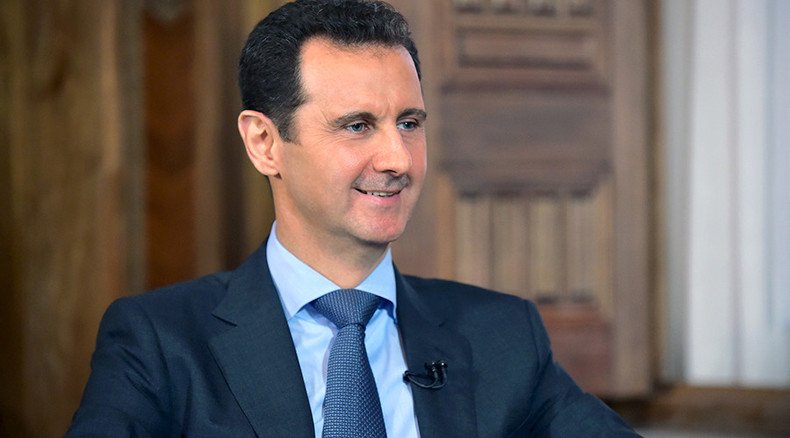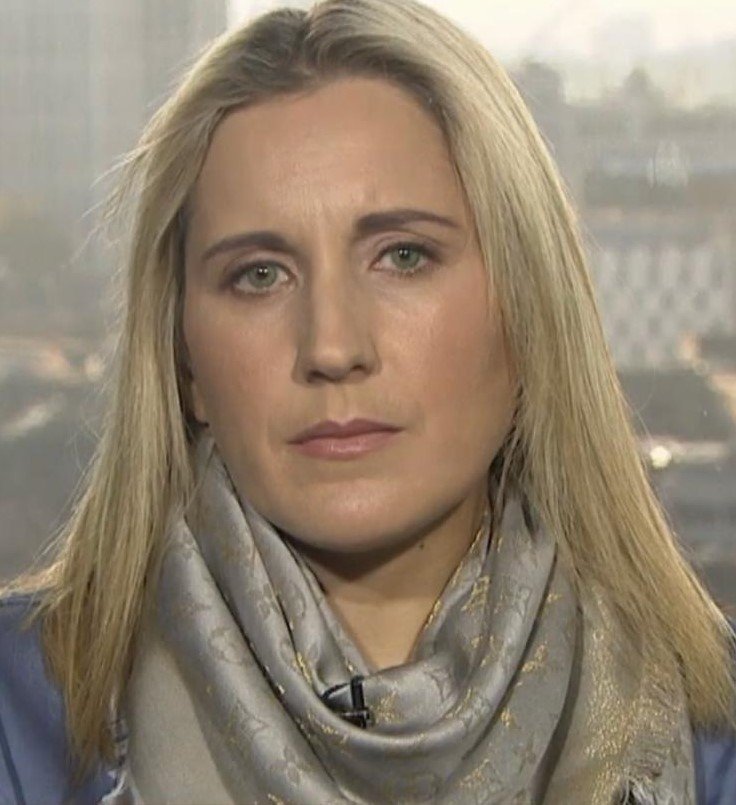Shifting winds: How Assad is becoming Syria’s only viable option

In a press conference this month, German Chancellor Angela Merkel introduced the notion that Syrian President Bashar Assad could indeed be a useful partner in defeating terror. What could have spooked Europe so badly it wants to make a deal with its self-appointed demon?
Are Western capitals finally owning up to the quagmire they helped create in Syria? Well not exactly, but the tone of officials is certainly more conciliatory than it was only a few months ago, when French Foreign Minister Laurent Fabius, and his British counterpart, Philip Hammond defiantly refused the possibility of engaging Assad for the sake of defeating terror.
READ MORE: Merkel admits Syrian conflict cannot be resolved without Bashar Assad
“Proposing Assad as a solution to the extremists is to misunderstand the causes of the extremism. After 220,000 deaths and millions displaced, it is illusory to imagine that a majority of Syrians would accept to be ruled by the one who torments them,” they wrote in a joint statement in February.
What a difference a few months can make… Or is it that Syria's war became too much of a palpable reality for Western capitalism to handle? Could it be that Europe is now willing to break bread with the man it has demonized for the past few years to stem the tide of refugees on its territories?
While officials will most likely deny that Syria's exodus has anything to do with their sudden change of heart, I doubt anyone will be fooled by this volte-face. Europe's stance towards foreign military interventionism remains as liberal as it ever was, with its officials advocating wars in the name of democracy building, but carrying the human burden conflicts inevitably generate was never part of the deal.
While invasions are indeed lucrative - at least from weapon dealers' standpoint - the cost may now be too high for Western capitals to bear, because it means having to open their borders to those made destitute by NATO’s military ambitions. And since the demonization and criminalization of refugees will likely take too long to really help curb the ongoing human flow into Europe, officials are scrambling for a quick fix.
Blame #Assad: The world according to State Department http://t.co/qYBUB4aBk3pic.twitter.com/rQuPvKBvU4
— RT (@RT_com) September 16, 2015Suddenly President Assad does not look so devilish after all. Maybe soon his constitutional legitimacy will be remembered too and those remarks politicians made that Assad's rule was more dangerous Islamic State’s (IS, formerly ISIS/ISIL) will be long forgotten - cataloged under temporary political insanity - or will it simply be redacted from the pages of history. Whichever is easier to handle surely!
LISTEN MORE:
But let's go back to the Syrian leader’s political absolution.
On September 10, British Prime Minister David Cameron called for "hard military" intervention against ISIS. For what seems like forever, Cameron actually put IS as Britain's primary target, moving away from his anti-Assad narrative and injunctions that those "moderates" should be further propped up against Damascus.
He said: “We have to be part of the international alliance that says we need an approach in Syria which will mean we have a government that can look after its people."
Not to be a complete turncoat Cameron added in the same breath: "Assad has to go, ISIL has to go. Some of that will require not just spending money, not just aid, not just diplomacy but it will on occasion require hard military force.”
Here, the subtitle should read: "Supporting terror did not exactly work out for us so let's go back to the drawing table and figure a way out of this mess, while keeping face and sticking to our regional military take-over agenda."
Assad & #ISIS responsible for drowned Syrian boy, says Cameron http://t.co/YiBdQ6rCjzpic.twitter.com/ZYLIeventg
— RT (@RT_com) September 3, 2015If President Assad is no longer Western powers' immediate target, they are still a long way away from giving up on ousting him from power. Washington, London, Paris and Berlin still very much want to control Syria's political and institutional fate. Those billions they invested will not go to waste … forget about rebuilding, I'm talking colonial exploitation here.
This September 24, German Chancellor Angela Merkel sealed the deal when she bluntly proposed that Assad play a part in saving his country from complete annihilation. Now that's an idea!
Hold on! Wasn’t it Vladimir Putin who first suggested that no peace in Syria would ever manifest without the Syrian president’s active contribution, especially since the latter is still viewed by Syrians as their legitimate leader?
READ MORE: Putin’s consistency on Syria has Washington fuming
Even if Western powers would like to deny this inconvenient reality, Assad remains a popular leader among his people, even more so now that the alternative is a life under the psychotic IS rule of Islamic State. Let's remember that this civil war Syria finds itself stuck in is actually no such thing. Syria, like Iraq is under invasion from a foreign force motivated by a foreign ideology. Syrians called for reforms back in 2011, not regime change; those cries were those of Western-funded, Western-backed "moderates". Remember those? Now they fly the black IS flag and they are the reason why hundreds of thousands of people were displaced.
“We have to speak with many actors, this includes Assad, but others as well,” Angela Merkel said at a press conference following the EU emergency summit on the refugee crisis. How convenient!
It is funny how this crisis in Europe is suddenly witnessing sensible suggestions from politicians. Now European leaders want to negotiate! Now Europe’s capitals are willing to admit to President Assad's political weight and role in solving Syria's crisis. Are we supposed to cheer now?
Here's the thing: maybe Europe should really take a page out of President Putin's political handbook because his foreign policies happen to make sense. Rather than preach wars he has worked to build economic ties and to weave a network that is so tightly intertwined that military interventionism will lose its appeal.
Who's the madman now?
LISTEN MORE:
The statements, views and opinions expressed in this column are solely those of the author and do not necessarily represent those of RT.














